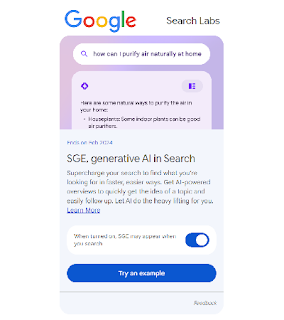AI Startups: Driving the Future of Technology and Business
Explore the advantages, challenges, and future of AI startups in this comprehensive article on AI startup trends and insights. Learn how AI startups are driving innovation and changing the landscape of business and technology.
In recent years, the rise of artificial intelligence (AI) has led to the emergence of numerous startups in the tech industry. These companies are using AI to develop innovative solutions and disrupt traditional industries. From healthcare to finance to transportation, AI startups are changing the way businesses operate and transforming the future of technology.
In this article, we will explore the world of AI startups and how they are driving the future of technology and business. We will discuss the advantages and challenges of starting an AI company and highlight some of the most successful AI startups.
Introduction
to AI Startups
An AI startup is a company that uses artificial intelligence to develop products or services. These companies are often founded by individuals who have expertise in machine learning, natural language processing, or computer vision. They use AI to solve complex problems, automate tasks, and create new opportunities.
Advantages of Starting an
AI Startup:
- High Demand: AI technology is in high demand, and there is a vast market for startups that can offer innovative AI solutions. The potential for growth and profitability is significant.
- Opportunities for Innovation: AI is a rapidly evolving field, and there are always opportunities to develop new and innovative solutions. Startups can take advantage of this and create cutting-edge technologies that have the potential to disrupt industries.
- Low Barrier to Entry: Compared to other industries, AI startups have a relatively low barrier to entry. With the availability of open-source tools and cloud computing resources, startups can access the necessary infrastructure and tools to develop their AI solutions without significant upfront costs.
- Access to Funding: AI startups are highly attractive to investors due to the potential for significant returns. There is a lot of venture capital funding available for AI startups, and many investors are actively looking for the next big thing in AI technology.
- Attractive Work Culture: AI startups are often known for having a dynamic and innovative work culture. They tend to attract people who are passionate about technology and have a desire to create something new and exciting.
Challenges of Starting an
AI Startup:
- Talent Acquisition: Finding the right talent is one of the biggest challenges for AI startups. Skilled AI professionals are in high demand, and there is intense competition for top talent. Startups need to have a solid recruitment strategy to attract and retain the right people.
- Data Availability: AI relies heavily on data, and startups may struggle to find the data they need to train their algorithms. Access to high-quality data can be a significant challenge, and startups may need to invest in data acquisition and management tools to address this.
- Ethical Concerns: AI technology raises ethical concerns around privacy, bias, and job displacement. Startups need to be mindful of these issues and ensure that their solutions are developed in an ethical and responsible manner.
- Regulatory Landscape: The regulatory landscape around AI technology is complex and evolving. Startups need to be aware of the relevant regulations and compliance requirements to avoid legal issues and reputational damage.
- Scalability: AI startups need to be able to scale their solutions rapidly to meet the demands of their customers. Achieving scalability requires a robust and flexible infrastructure, which can be costly and time-consuming to develop.
Successful AI Startups
There are numerous successful AI startups that have emerged in recent years. Here are a few examples:
OpenAI: OpenAI is an AI research company that aims to create safe and beneficial AI for everyone. They have developed several AI-powered products, including GPT-3, and GPT-4, the language generation models that can write human-like text.
UiPath: UiPath is a robotic process automation (RPA) company that uses AI to automate routine tasks. Their technology can be used in a variety of industries, including finance, healthcare, and telecommunications.
SenseTime: SenseTime is a Chinese AI company that specializes in computer vision and facial recognition. Their technology is used in a variety of applications, including security and surveillance.
Zebra Medical Vision: Zebra Medical Vision is an Israeli startup that uses AI to analyze medical images and provide insights to healthcare professionals. Their technology can help doctors detect diseases and make more accurate diagnoses.
Future of AI Startups:
Continued
Growth: AI technology is still in its early stages, and there is a lot of
potential for growth in the field. AI startups are likely to continue to thrive
as the technology evolves and becomes more widespread.
Integration
with Other Technologies: AI technology is being integrated with other
technologies such as robotics, IoT, and blockchain. This presents new
opportunities for AI startups to develop innovative solutions that leverage
these technologies.
Industry
Disruption: AI technology has the potential to disrupt industries across the
board. Startups that can develop AI solutions that are capable of transforming
industries and delivering significant value to customers are likely to be
highly successful.
Greater
Emphasis on Ethics and Responsibility: As the use of AI technology becomes more
widespread, there is likely to be a greater emphasis on ethics and
responsibility. AI startups that can demonstrate that their solutions are
developed in an ethical and responsible manner are likely to be more successful
in the long run.
Collaboration and Partnership: The complexity of AI technology means that startups are unlikely to be able to develop comprehensive solutions on their own. Collaboration and partnership with other startups and established companies are likely to become increasingly important for AI startups to succeed.
Conclusion
AI startups are driving the future of technology and business. These companies are using AI to solve complex problems, automate tasks, and create new opportunities. While starting an AI startup comes with challenges, the potential rewards are significant. As AI technology continues to improve, we can expect to see more startups using AI to create innovative solutions and change the world.




Comments
Post a Comment